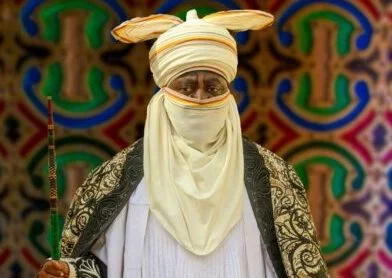In a significant move to help the masses observe the holy month of Ramadan with ease, the Emir of Kano, Alhaji Aminu Ado-Bayero, has appealed to traders to reduce the cost of foodstuffs and other goods.
The First Class traditional ruler also advised wealthy Nigerians to help the less privileged during Ramadan.
Ado-Bayero made the call on Sunday in Zaria during the lunch of a book, titled: “Dauloli a Kasar Hausa,” meaning: “Kingdoms in Hausaland,” by Prof. Sa’idu-Mohammed Gusau.
Also, the royal father prayed that God Almighty protects the lives of the people so they could witness the sacred month in sound health and accept the prayers and sacrifices.

Also Read:
- APC will connect Anambra to centre in November – Ganduje
- Defilement of three-year-old: Police admit detaining 10-year-old
- Oyebanji congratulates ex-Gov. Fayemi on 60th birthday
- Ogun CP reminds motorists of virtue of patience while driving
- Ijaw Youths Network celebrates philanthropist, Mathew Tonlagha on his birthday
The emir commended the publisher of the book for providing details on the Hausa kingdoms in Kano, Katsina, Zamfara, Kebbi and Zazzau, among others.
According to him, the book “offered clear explanation on the administrative system of governance deployed by each kingdom; their trades, norms and values”.
The book reviewer, Prof. Ahmed Zaria of Kaduna State University, said the 356-page book has seven chapters.
Zaria disclosed that the book provides a clear narrative and history of the Hausa kingdoms, politics, administration, norms, and values from their inception to date.
He added that the book is a must-have for students and researchers in linguistics and history.
Zaria further advised academics not to relent in research activities, lamenting that some academics, upon reaching the professorial cadre, abandoned research.
On his part, the publisher, Prof. Gusau, said the book was an attempt to harmonise the written history of the Hausa Kingdoms.
He revealed that most of the research at the universities was on a few kingdoms and not all.
Gusau added that the book is also an attempt to support harmony and strengthen unity among the Hausa kingdoms and other Nigerians.


